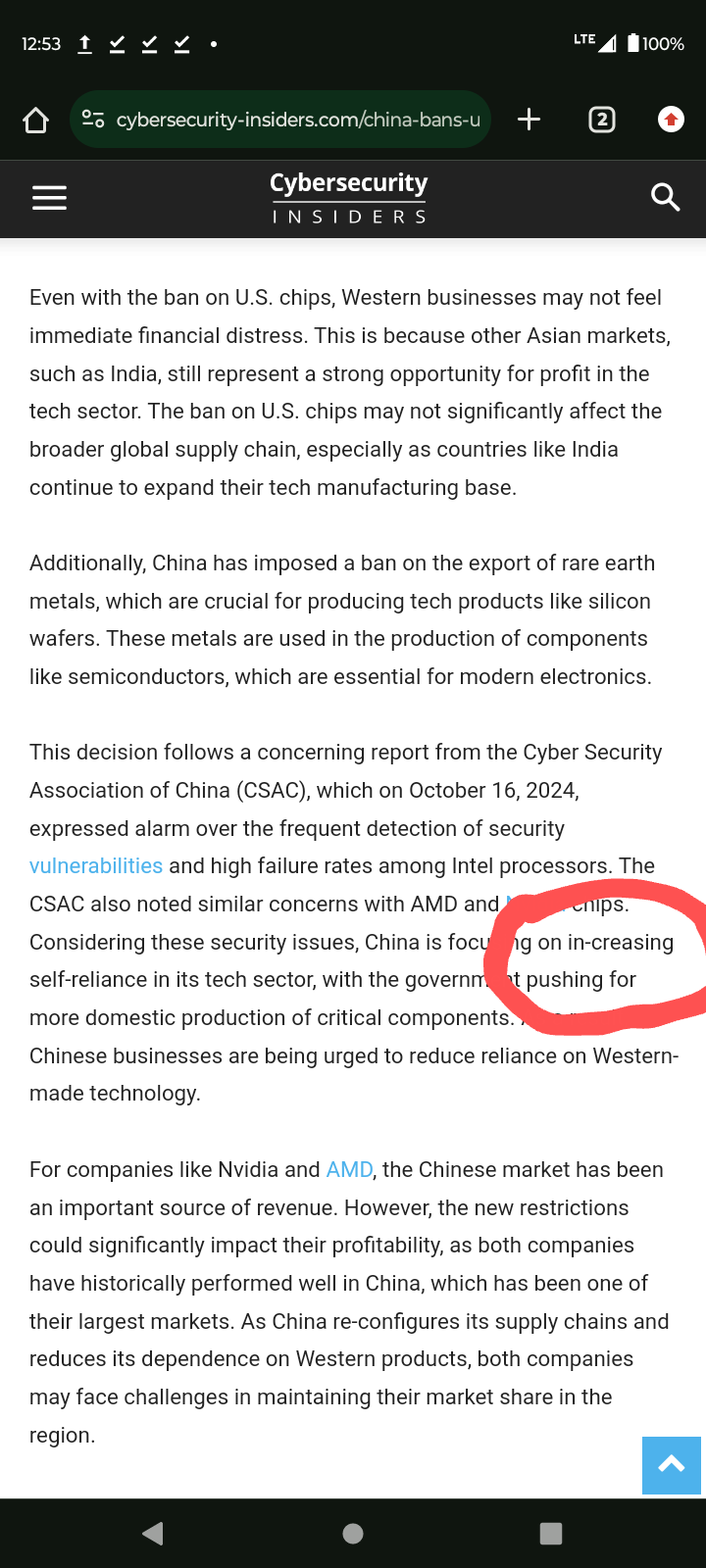Sooo, all chips basically.
those fools forgot about lays 😎
Lays makes good chips. It’s too bad that they’re really only good for the data center market, since you can’t have just one.
deleted by creator
They started making their own a while back.
Edit:adding link https://en.m.wikipedia.org/wiki/Semiconductor_Manufacturing_International_Corporation
Raspberry pies and MacBooks across the realm.
Except for the ones made by the Chinese government.
Maybe they will be investing towards RISC-V chips?
They already have.
Good. Pump that up. I want to be able to run my favorite open OS on open hardware.
Worth noting that just because a CPU uses the RISC-V instruction set does not make it open hardware; it just makes it possible for it to be open hardware, but it’s still up to the copyright holder to release the source files and design as open source.
Fair, but it means devs will write software that can one day run on open hardware.
That’s true, but open source software is generally written in high level, portable languages that can be compiled to multiple CPU architectures without changing the code, so proprietary software is really what would have any problems running, and even then, there are x86 emulators like Box86/64 and FEX out there and can even work transparently using systemd-binfmt.
At the application level? Yes. At the OS / package level? It’s still a work in progress. And you need the latter to use the former.
Still, better than fully proprietary hardware.
In a small way, yes, in that the software ecosystem built around it would work on future open hardware, but the hardware could absolutely still be fully, 100% proprietary.
Woule be best case scenario for pretty much everyone except, well, all the companies currently in the space. And western global hegemony.
All empires will tumble
This reads like fake news. No publication date, no sources listed, very vague and self-contradictory on the details. How is no other news outlet corroborating this?
I’d take this one with a huge grain of salt.

in… creasing?
better than outcreasing i guess
Down with AI art
That’s going to make things very difficult for them short-term. Medium-term too. Bets are still off on long-term.
I laugh at your decadent Western technology!
L!!! Mao
I can’t read the article for it opens some 1x1 gif at loading, but I suspect they’d only need to write a long form proof of why they need to use exactly that foreign brand for their work etc, and probably if they also have the leverage to do so (so many get filtered out, maybe). That’s how it works in Russia for plenty of years after we proclaimed we’d replace imported goods with something we don’t even produce lol.
I mean… They’re not exactly wrong for this, especially with Intel.
In other news, Zilog stock sees unprecedented growth.
Precisely. They’ve finally stolen enough IP to make replicas of these banned chips and keep all the profits.
No 3dfx? Shame
While I appreciate the joke, they’re technically nVidia now
This must mean that they’re getting cheaper in the West now, right? Right?!
Chinese rejection -> “Supply chain issues” -> Price goes up. Again.
Reflexively thought this was the onion. Can someone explain yo me how this isn’t idiocy?
China’s a big market, and banning three major brands from being used means those brands will fight against Trump’s trade war so they can get access to the market again. There’s no way Intel, AMD, and Nvidia will be happy to lose all that money.
Will they really lose much money though? Chip makers (NVIDIA especially) have practically been able to sell everything they can produce since before the start of COVID, so I doubt they will lose a lot from this
The answer is yes, they will lose a lot of money.
The Chinese consumer market is larger than the US and EU markets, and is growing, not shrinking. On top of that the Chinese business market is growing and is growing extremely quickly. The backbone of either market in the 21st century is computerized goods.
This is also a sign that the multiple domestic architectures are good enough to act as drop in replacements for at least government work, so business and consumer uses aren’t too far behind.
China has their own chip now built upon stolen R&D and they’re going to make sure it’s successful.
They only need phones
To play diablo immortal.





